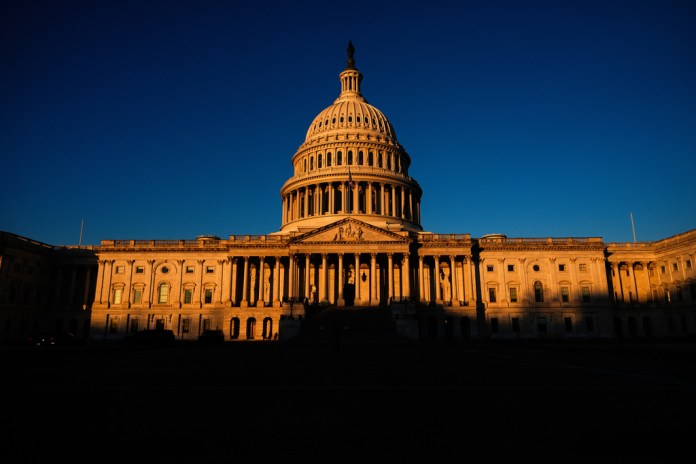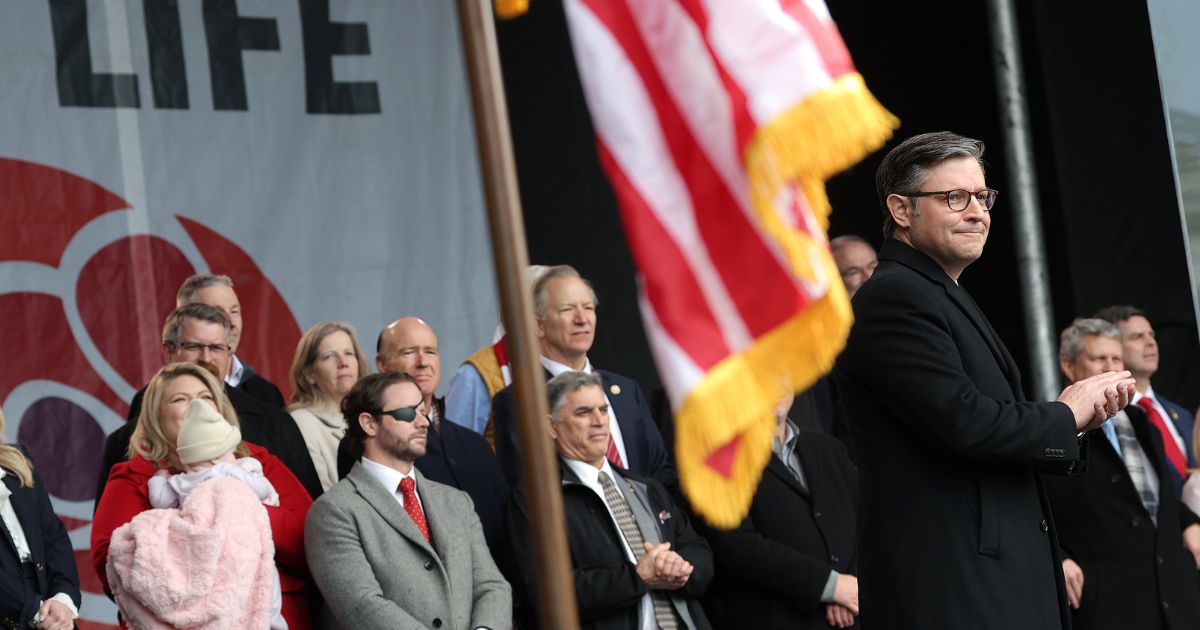Leading Pro-Life Group To Spend $80 Million In 2026 Midterms
More than three years after the Supreme Court overturned Roe v. Wade, ending the federal protection of abortion, the battle over abortion rights continues intensely. Ahead of the 2026 midterm elections, Susan B. Anthony Pro-Life America (SBA) and Women Speak Out PAC (WSO) announced an $80 million campaign aimed at maintaining pro-life majorities in Congress. their strategy includes extensive voter outreach through canvassing, digital advertising, mail, and early voting efforts targeting over 10 million voters nationwide, especially in key battleground states like Iowa, Georgia, Michigan, and North Carolina.
SBA, with a network of over one million supporters, seeks to mobilize pro-life voters who often skip midterm elections and persuade undecided voters to oppose Democrats’ expanded abortion policies. Despite higher turnout in recent midterms compared to historical averages, motivating voters remains crucial. The organizations plan 4.5 million door-to-door visits and targeted student-led campaigns in competitive districts.
While pro-life laws, such as Iowa’s Fetal heartbeat Law, have reduced abortions considerably in some states, overall abortion numbers have increased due to abortion tourism in states with restrictive laws. The pro-life movement has also seen progress with numerous Planned Parenthood facility closures, though abortion protections were recently affirmed in amendments in several states.
SBA highlighted its pivotal role in the 2024 elections, contributing to key Republican victories by reaching millions of voters, including many low-turnout individuals. They stress that preserving pro-life majorities in Congress is essential to counter Democratic support for expanded abortion access, including late-term abortions and taxpayer funding of abortion services. The fight for unborn children’s lives remains a central issue shaping the upcoming election cycle.
More than three years after the Supreme Court put an end to the 1973 ruling that federalized the murder of the unborn, the fight for life is far from over. Much is at stake in the year ahead.
On the cusp of a critical midterm election year, Susan B. Anthony Pro-Life America (SBA) and Women Speak Out PAC (WSO) have announced they will spend $80 million in the 2026 midterms in an effort to retain pro-life majorities in Congress. The plan is to reach 10.5 million voters nationwide through a mix of canvassing, digital advertising, voter contact mail and “a robust early vote campaign,” the organizations said in a statement.
‘Fire Up Pro-Life Americans’
SBA Pro-Life, with its network of more than 1 million pro-life Americans nationwide, will work with the WSO political action committee to “amply the voices of women opposed to extreme abortion policies and the extremists pushing them.”
SBA President Marjorie Dannenfelser knows what pro-life espousing Republicans should understand well by now: they can’t win without their pro-life base, particularly in low-turnout midterm elections that traditionally aren’t kind to the party in charge.
“Our mission is to fire up pro-life Americans who do not consistently vote in midterms and convince persuadable voters to reject the Democrats’ extreme all-trimester abortion agenda,” Dannenfelser said in the statement. Her organization lays claim to the largest pro-life voter contact program in the nation, turning out many millions of pro-life voters since it launched in 1992.
Voter turnout in midterms is indeed much lower than presidential election years. But the last two midterms boasted the highest voter participation rates — 49 percent in 2018 and 46 percent in 2022 — in a century and a half century, respectively, according to Pew Research Center. The most recent presidential elections, too, were among the highest-turnout contests in the past century.
Motivation is the key. But how do you motivate voters, particularly low-propensity voters, to cast ballots in lower-turnout years?
‘A Powerful Victory’
SBA and WSO plan to make 4.5 million visits to voters at their homes across several battleground states, including Senate battlegrounds Iowa, Georgia, Michigan, and North Carolina. All four also contain key House battleground districts. The get-out-the-vote campaign will send student teams “into a dozen of the most competitive House battleground districts across the country,” according to SBA.
The Cook Political Report last month rated Senate elections in Georgia, Michigan, Maine, and North Carolina “toss-ups.” Iowa’s race to replace junior Sen. Joni Ernst, who announced in September she will not seek reelection, is rated a likely win for Republicans. But Iowa Democrats, long in the political wilderness in the red Midwest state, are expected to lean on abortion access, campaigning against Iowa’s Fetal Heartbeat Law that prohibits most abortions after the unborn baby’s heartbeat is first detected (around six weeks into pregnancy).
When Gov. Kim Reynolds signed the bill in May 2018, Iowa’s law was the leading pro-life stand in the country. It was to go into effect after the U.S. Supreme Court overturned Roe v. Wade in June 2022, but pro-abortion forces fought the heartbeat law in court. The law survived the legal challenges and officially went into effect on July 29, 2024.
“One year after the Fetal Heartbeat Law went into effect, abortions in Iowa are down nearly 60%,” Reynolds said in a statement earlier this year. “This is a powerful victory for life, and it’s all because Iowans and their representatives stood strong for the rights of the unborn, passing the bill not just once, but twice — and by an increasingly wide margin.”
‘Death Destination’
But the number of abortions has increased since the court’s Dobbs v. Jackson Women’s Health Organization ruling ending the nearly 50-year-old unconstitutional abortion law of the land. Abortion-on-demand blue states and cities have pushed a macabre “abortion tourism” or “death destination” industry catering to pregnant women in states with more restrictive laws.
“The most accurate, current, and complete data shows that 1,121,450 abortions were performed within the formal U.S. health care system from July 2023 to June 2024. Peer-reviewed research also shows thousands upon thousands of self-managed drug-induced abortions occurring outside the formal health care system,” the Charlotte Lozier Institute reported this year.
There were nearly 626,000 abortions reported to the Centers for Disease Control and Prevention in 2021, the last full year before the Dobbs decision.
The pro-life movement has notched some significant wins in the first year of President Donald Trump’s historic second term in office. Abortion factory Planned Parenthood has closed approximately 70 “health centers” this year, according to a Planned Parenthood Federation report released last week. The closures, Planned Parenthood says, are thanks to actions by the Trump administration and a defunding provision in Trump’s One Big Beautiful Bill.
But last year voters in seven states — Arizona, Colorado, Maryland, Missouri, Montana, Nevada, and New York — approved amendments protecting the murder of the unborn in their constitutions. Similar ballot questions failed in Florida, Nebraska, and South Dakota. And in this month’s elections, Pennsylvania voters locked in pro-abortion protections for the next 10 years in the Keystone State.
“Pennsylvania voters elected to retain three elderly, activist state Supreme Court justices for another decade, and the results fell along the usual party lines, with Democrats generally in favor of the retentions and Republicans generally opposed,” The Federalist’s Beth Brelje wrote. In short, not enough pro-life voters cast ballots as if life depended on it.
That’s a problem.
‘A Massive Amount’
SBA and Women Speak Out are taking the campaign to pro-life voters who infrequently vote in midterm elections as well as “persuadable voters,” the organizations say.
“According to a CNN poll, Donald Trump won 91% of the pro-life vote in 2024 and would not have been victorious if 1% to 2% of those voters had stayed home,” the press release announcing the $80 million GOTV effort states.
SBA Pro-Life America played a significant role in vote-chasing efforts in 2024’s election, which returned Trump to the White House, kept Republicans in control of the House, and gave back the Senate majority to the GOP. SBA Pro-Life America invested $92 million in the 2024 election cycle, funding a Voter Contact Program that reached more than 10 million persuadable and low-turnout voters, according to the nonprofit. That included north of 4 million visits to voters’ homes across battleground states like Michigan, Pennsylvania and Iowa neighbor, Wisconsin.
“SBA was there from the beginning,” Sen. Tim Sheehy, R-Mont., whose victory last November helped Republicans recapture the Senate, said in the statement. “They knocked over 100,000 doors in our state with 600,000 voters. That’s a massive amount. And the most important thing they did was shatter the narrative that we were somehow radicals because we wanted to protect the lives of unborn children.”
That is precisely what is at stake again in 2026 — the lives of unborn children.
“The party that once claimed the position of ‘safe, legal and rare’ is now the party of abortion anytime, anywhere, paid for by the taxpayer. The Democrats have become unrecognizable as they continue to embrace second and third trimester abortions and won’t even outlaw the killing of babies who survive failed abortions,” Dannenfelser said. “We must retain our pro-life majorities in both houses to stop this extremism and prevent the abortion lobby from clawing back $500 million in taxpayer funding for their own political machine.”
Matt Kittle is a senior elections correspondent for The Federalist. An award-winning investigative reporter and 30-year veteran of print, broadcast, and online journalism, Kittle previously served as the executive director of Empower Wisconsin.
" Conservative News Daily does not always share or support the views and opinions expressed here; they are just those of the writer."


